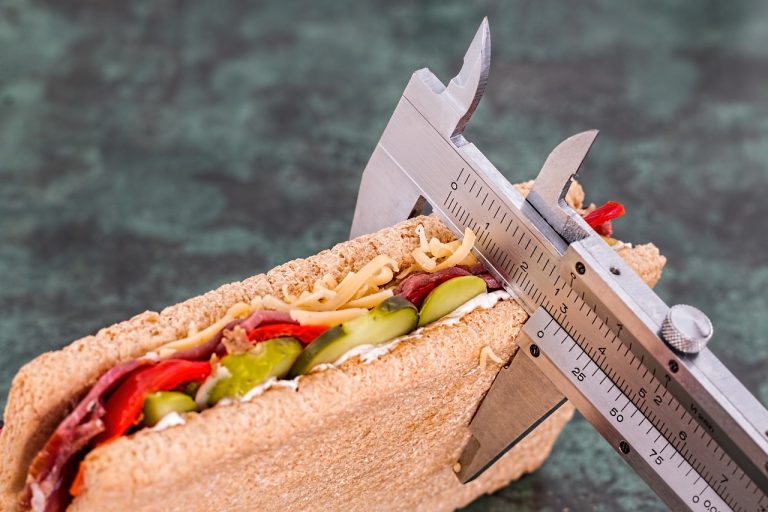Does Intermittent Fasting Slow Your Metabolism? (Myth Busted)
You’ve probably heard the warning:
“Don’t skip meals—it’ll slow down your metabolism!”
It’s a common fear, especially for women over 40 who are already feeling the effects of a slowing metabolism.
So when intermittent fasting comes into the conversation, the doubt creeps in:
“Isn’t fasting just starving myself? Won’t it make things worse?”
Let’s clear it up.
Not only does intermittent fasting not slow your metabolism when done correctly—it can actually enhance metabolic health, especially if you’re in your 40s, 50s, or beyond.
Let’s bust the myth once and for all and show you how to fast safely and effectively—without risking your metabolism.

❌ Myth: Fasting Slows Down Your Metabolism
This myth stems from an outdated belief:
That eating frequently “keeps your metabolism stoked” like a fire, and skipping meals makes your body go into “starvation mode.”
But here’s the truth:
Your metabolism doesn’t tank the moment you skip a meal.
In fact, short-term fasting has been shown to boost certain metabolic processes, not suppress them.
🔬 The Science Behind Metabolism & Fasting
Metabolism is the process by which your body converts food into energy. It’s influenced by:
- Your basal metabolic rate (BMR) – the energy your body uses at rest
- Hormones (like insulin, thyroid, cortisol, and growth hormone)
- Lean muscle mass
- Sleep, stress, and activity levels
So what happens to your metabolism when you fast?
✅ Short-Term Fasting (24 Hours or Less):
- No slowdown in metabolism
- In fact, fasting for 12–24 hours can slightly increase metabolism due to a rise in norepinephrine and human growth hormone (HGH)
A widely cited study published in the American Journal of Clinical Nutrition found that resting energy expenditure increased during 36-hour fasts in healthy men and women.
💡 Translation: Your metabolism actually runs faster during short-term fasts.
🧠 Why the Myth Persists
The fear of “starvation mode” comes from studies on long-term calorie restriction or very low-calorie diets (VLCDs)—where people drastically cut calories every day for weeks or months.
Those studies do show metabolic slowdown—but intermittent fasting is not the same as chronic under-eating.
🚫 Intermittent fasting ≠ starving
You’re not depriving your body every day. You’re simply giving it windows of rest—and eating enough nutrients during your eating windows.
In fact, one of the strengths of systems like Eat Stop Eat is that you eat normally most days—there’s no chronic restriction involved.
🔄 How Intermittent Fasting Supports Metabolism
Here’s what’s happening under the hood when you fast:
🔹 Lower Insulin = Better Fat Burn
Fasting allows insulin levels to drop. Lower insulin means your body can finally access stored fat and use it for fuel.
🔹 Boosts Human Growth Hormone (HGH)
Fasting can increase HGH by up to 1,300% in women, which helps preserve lean muscle and prevent metabolic decline.
🔹 Supports Mitochondrial Health
Fasting activates autophagy, a cellular clean-up process that helps your mitochondria (your energy engines) work more efficiently.
🔹 Improves Insulin Sensitivity
A key to metabolic health, especially for women over 40. Better insulin sensitivity = less fat storage and more fat-burning potential.
📉 When Does Metabolism Actually Slow Down?
Here’s when you might see your metabolism slow down (and how to avoid it):
❌ Chronic Undereating
Consistently eating too few calories (e.g., 800–1,000 per day) for weeks/months causes your body to adapt by slowing BMR.
❌ Extreme Daily Fasting + Intense Workouts
Fasting aggressively every single day while also overtraining can increase cortisol and signal your body to conserve energy (slowing metabolism).
❌ Poor Recovery and Sleep
Lack of rest, sleep, and stress management negatively impacts thyroid and metabolic hormones.
✅ How to Fast Safely (Without Slowing Your Metabolism)
To ensure your metabolism thrives with fasting, follow these tips:
✔️ 1. Don’t Fast Every Day at First
Start with 1–2 fasts per week, like in the Eat Stop Eat method. Your body has time to reset—without stress or burnout.
✔️ 2. Eat Enough During Eating Windows
You’re not “dieting” on fasting days. Make sure your meals are nutrient-dense and satisfying. This prevents muscle loss and keeps your metabolism healthy.
✔️ 3. Preserve Lean Muscle
Include resistance training 2–3x a week and prioritize protein to protect lean mass, which supports metabolic rate.
✔️ 4. Get Enough Sleep
Sleep is where your body does its best recovery and hormonal repair. Fasting + quality sleep = metabolic magic.
✔️ 5. Listen to Your Body
If fasting makes you feel weak, dizzy, or highly irritable—ease up. The goal is metabolic health, not stress.
🧘♀️ Especially for Women Over 40…
Women in midlife are more vulnerable to:
- Insulin resistance
- Estrogen/progesterone decline
- Muscle loss
- Cortisol spikes
When fasting is too aggressive, it can add stress and backfire.
That’s why a flexible, weekly approach like Eat Stop Eat is ideal—it works with your hormones and energy, not against them.
💬 What Women Are Saying
💜 “I was terrified that fasting would crash my metabolism. But after 6 weeks, my energy is better, I’m sleeping deeper, and I’ve lost 9 pounds—without tracking a thing.” – Karen, 44
💜 “I used to believe the 6-meals-a-day myth. Eat Stop Eat taught me how to fast without fear, and my metabolism hasn’t suffered—in fact, I feel younger.” – Mandy, 51
💜 “Just two fasts a week, and I’ve seen more results than I ever did with calorie cutting. My metabolism is working again.” – Janice, 48
🎯 The Guide That Shows How to Fast Safely and Effectively
If you’re ready to try intermittent fasting—but want a plan that protects your metabolism, supports your hormones, and fits your lifestyle—this is it.
👉 Download the Free 2-Day Fasting Plan + Get Access to the Eat Stop Eat System
✅ Just 1–2 fasts per week
✅ No daily restriction or calorie counting
✅ Designed for women over 40
✅ Burn fat, balance hormones, and protect your metabolism
➡️ Click here to get the guide and discover Eat Stop Eat
You’ll learn exactly how to fast safely, effectively, and without fear of damaging your metabolism.
🔁 Final Thoughts
Metabolism myths die hard. But here’s the truth:
✅ Short-term fasting doesn’t slow your metabolism. It can actually make it stronger.
When done the right way, intermittent fasting helps reset your body, support your hormones, and ignite your fat-burning potential—especially after 40.
You don’t need to eat six times a day.
You don’t need to fear skipping breakfast.
You just need a smarter approach—and now you’ve got it.





